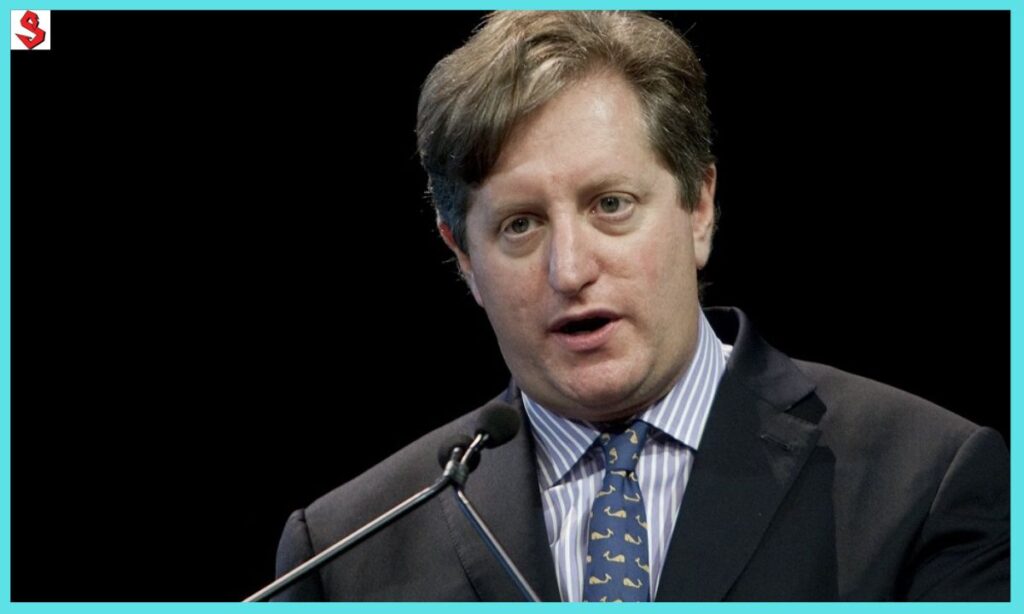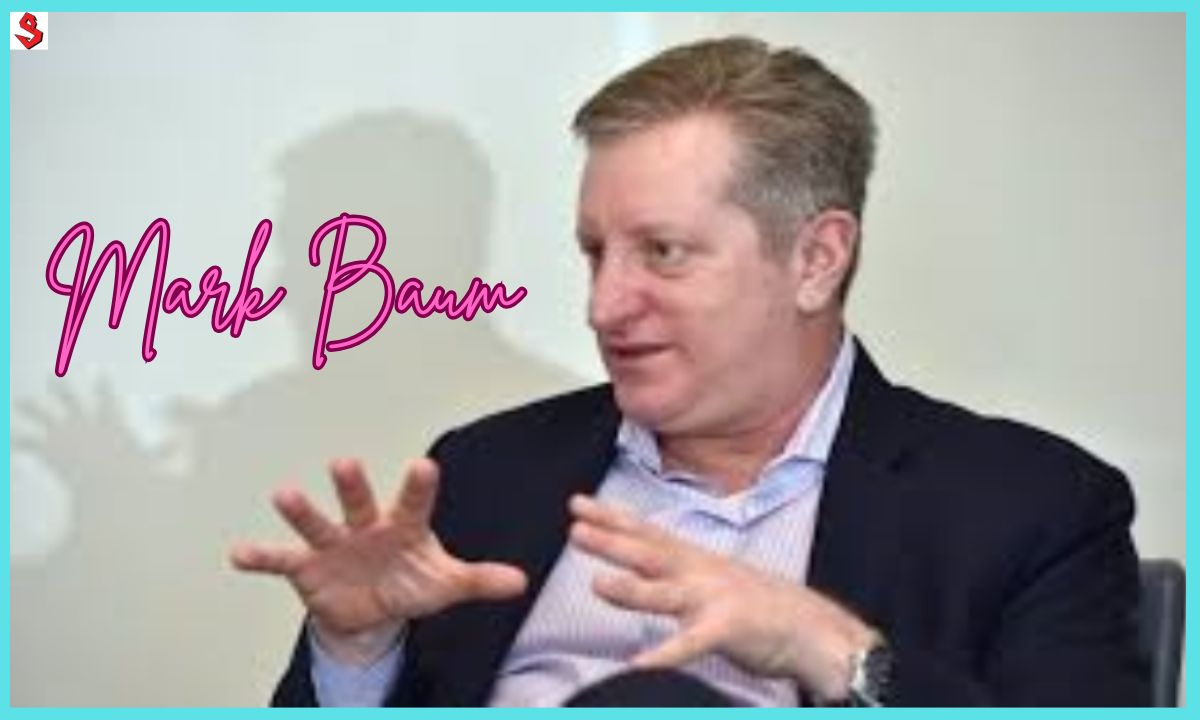The character of Mark Baum, portrayed masterfully by Steve Carell in “The Big Short,” represents the real-life Wall Street investor Steve Eisman. His remarkable journey from a law school graduate to a prescient financial prophet who predicted the 2008 housing market collapse has become legendary in investment circles.
In an industry dominated by conformity and groupthink, Eisman emerged as a vocal critic of financial institutions’ reckless behavior. His unique perspective and unwavering conviction in his analysis led to one of the most profitable trades in Wall Street history.
Personal Details
| Category | Information |
| Real Name | Steve Eisman |
| Born | July 8, 1962 |
| Education | University of Pennsylvania (Magna Cum Laude), Harvard Law School |
| Notable Role | Inspiration for Mark Baum in “The Big Short” |
| Major Achievement | Successfully predicted and profited from 2008 housing crisis |
| Current Position | Portfolio Manager at Neuberger Berman (until 2024) |
| Known For | Short-selling CDOs before housing market collapse |
| Net Worth | Estimated $1.5 billion (2024) |
The Real Identity Behind Mark Baum
Steve Eisman’s transformation into the fictional Mark Baum represents more than just a name change for dramatic purposes. The character embodies the essence of a Wall Street outsider who saw what others refused to acknowledge.
His real-life persona combines intellectual brilliance with a brutally honest approach to analyzing financial markets.The decision to change his name in the film came from Eisman himself, though he remained closely involved in the movie’s development.
This collaboration between the real-life figure and the creative team helped ensure an authentic portrayal of both the person and the events that unfolded.
Early Life and Educational Excellence
Born into a family of finance professionals in New York City, Eisman’s early exposure to the financial world shaped his future path. His parents worked as brokers at Oppenheimer, providing him with firsthand insight into Wall Street’s inner workings.
Their influence extended beyond mere observation, as they later helped launch his finance career.His academic achievements were exceptional, graduating magna cum laude from the University of Pennsylvania in 1984.
Despite initially pursuing law at Harvard Law School, Eisman’s true calling lay in finance, where his analytical skills and critical thinking would prove invaluable.
The Path to Wall Street Success
Eisman’s entry into finance came through an unusual route, with his parents funding his first year’s salary at Oppenheimer due to anti-nepotism rules. This unconventional start led to his rapid rise as an equity analyst, where he developed his trademark skepticism and analytical rigor.
His early career experiences shaped his understanding of market inefficiencies and institutional blindspots. These insights would later prove crucial in identifying the housing market’s fundamental weaknesses.
FrontPoint Partners and The Housing Market Prediction
At FrontPoint Partners, Eisman managed over $1 billion and made his most famous market call. His team’s detailed analysis of the subprime mortgage market revealed systemic flaws that others overlooked.

Their research led to the controversial decision to short CDOs, effectively betting against the entire housing market.The success of this strategy came at a significant personal cost, as Eisman witnessed the devastating impact of the financial crisis on ordinary Americans.
This experience reinforced his critical view of the financial industry and strengthened his commitment to exposing market inefficiencies.
The Big Short Portrayal and Reality
Steve Carell’s portrayal of Mark Baum captured Eisman’s essential characteristics: his intelligence, abrasiveness, and moral outrage at market corruption. The film accurately depicted his thorough research process and unwavering conviction in his market analysis.
The movie’s success brought renewed attention to Eisman’s role in predicting the financial crisis. While some details were dramatized, the core story of his prescient market call remained faithful to reality.
Read More:Riley Reid: From Glittering Success to Heart-Wrenching Struggles in Adult Entertainment
Personal Traits and Professional Relationships
Eisman’s reputation for bluntness and brutal honesty earned him both admirers and critics on Wall Street. His wife’s famous quote about him being “rude and obnoxious and aggressive” even by Wall Street standards perfectly encapsulates his personality.
These characteristics, while challenging in personal relationships, proved valuable in his professional analysis. His willingness to question conventional wisdom and challenge authority helped him identify market opportunities others missed.
Investment Philosophy and Strategy
Eisman’s investment approach combines detailed fundamental analysis with a skeptical view of market consensus. His strategy focuses on identifying discrepancies between market perception and reality, particularly in financial institutions and complex securities.
His success stems from an ability to spot structural problems in seemingly stable markets. This skill, combined with the courage to act on his convictions, distinguishes him from conventional investors.
Notable Achievements and Controversies
Beyond the housing market prediction, Eisman’s career includes numerous successful market calls and controversial statements. His public criticism of for-profit education institutions in 2010 sparked significant debate and regulatory scrutiny.
His outspoken nature and willingness to challenge powerful institutions have sometimes led to professional conflicts. However, these same qualities have earned him respect as an independent thinker and market analyst.
Life After The Big Short Fame
Following his success during the financial crisis, Eisman founded Emrys Partners in 2012. Despite initial optimism, the fund struggled to replicate his earlier success and closed in 2014. This experience highlighted the challenges of maintaining exceptional performance in changing market conditions.

His subsequent role at Neuberger Berman represented a return to more traditional asset management. However, controversy continued to follow him, culminating in his placement on indefinite leave in 2024.
Read More:Suki Sin Age, Height, and Net Worth in 2024: From Humble Struggles to Spectacular Success
The Eisman Legacy in Modern Finance
Eisman’s influence extends beyond his personal trading success. His story has inspired a new generation of investors to question market assumptions and conduct thorough, independent analysis.
His emphasis on fundamental research and skepticism of conventional wisdom continues to influence investment philosophy.This combination of intellectual rigor and unfiltered honesty makes his story particularly compelling.
Recent Events and Public Statements
In September 2024, Eisman’s career took an unexpected turn following controversial social media statements. This event highlighted the ongoing tension between his outspoken nature and the constraints of institutional finance.
The story captures both the brilliance and controversial nature of a man who dared to challenge the entire financial system.
FAQ’s
How accurate is The Big Short’s portrayal of Steve Eisman?
The film captures his essential personality and professional achievements accurately, though some details were dramatized for entertainment.
What was Eisman’s biggest profit from the housing market crash?
While exact figures aren’t public, FrontPoint Partners earned hundreds of millions in profits from their short positions.
Is Steve Eisman still active in finance?
Yes, though his role has evolved over time, most recently working at Neuberger Berman until 2024.
What is Eisman’s primary investment strategy?
He focuses on fundamental analysis and identifying market misconceptions, particularly in financial sectors.
Why did Eisman allow his name to be changed in the film?
He preferred to maintain some privacy while still allowing his story to be told.
Conclusion
Steve Eisman, immortalized as Mark Baum in “The Big Short,” represents a unique figure in modern finance. His combination of analytical brilliance, moral conviction, and unfiltered honesty has left an indelible mark on Wall Street.
While his methods and personality may be controversial, his impact on financial markets and investment philosophy is undeniable. As markets continue to evolve, the lessons from his experience remain relevant for investors seeking to understand and navigate complex financial landscapes.

David is a talented content writer and digital marketer with expertise in SEO, social media management, and online marketing. He excels at creating impactful, data-driven content to help businesses connect with their target audience and achieve measurable outcomes.






2 thoughts on “Who is Mark Baum from The Big Short? A Brilliant Yet Controversial Wall Street Legend”